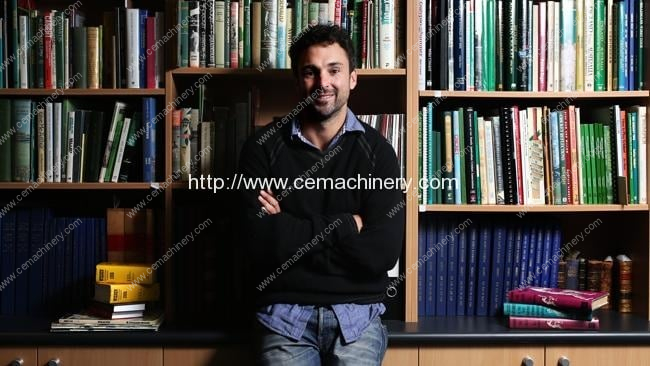Ed Cowan tests investment skills in his Tripod Coffee business
Cricketer Ed Cowan will have one eye on the Ashes this week — starting in Cardiff on Wednesday — and the other on his extended investment activities. These days, along with opening for NSW, the 33-year-old batsman has returned home to Tasmania to open a “coffee capsule” business — Tripod Coffee — with business partner and former fellow Tasmanian opener Steve Cazzulino.
Can fame, and earning serious money early, make you a target for get rich (or poor!) quick schemes?
You do see it a lot. Certainly people prey on this group and pitch different ideas and businesses … mainly because they realise many sportsmen have excess money and they get bored seeing a bank account growing and not being “put to use”. But often they don’t have an understanding of investment basics. I think a lot more education could go into that.
But you seem to have avoided such traps: You are finishing a Masters in Applied Finance at Macquarie University. You also did a stint at investment advisers Gresham Partners. How come?
In a sense I have been lucky primarily because I grew up in a very business-minded family — we were encouraged to read the business section of the paper at breakfast just as much as the sports section.
I’m lucky to have some very good people to bounce ideas off.
This business came to fruition upon the realisation that our cricket careers wouldn’t last forever. Steve (Cazzulino) and I started it to give us some real-world business experience and to upskill ourselves for the day when our cricket careers would be over.
So how’s life in the coffee business?
The market is exploding and we’ve been run off our feet. It is just the two of us running the business so if anything gets done, it is completed by either one of us.
We realise that coffee capsules are not in the immediate term replacing the thriving cafe culture or a great barista up the road, but many people are realising it’s high quality coffee that has a place in their morning routine.
(Tripod’s marketing material says it uses globally sourced, locally roasted coffee to create coffee capsules for Nespresso coffee machines.)
We don’t think it is unrealistic for revenues to be in excess of a million dollars within the next few years.
What has running a business, with a partner, taught you?
That the same trust you foster with your opening partner on the cricket field holds you in great stead for a fruitful relationship off it. From a general learning perspective, we have certainly had our eyes opened by the costs involved in starting a business — costs that you don’t realise exist until you find yourself paying for them.
What was your first investment and how did it go?
Assuming we’re excluding a door-to-door cupcakes stall I ran when I was 10 (we were probably overcharging!) my very first equity investment was Fairfax Media about 15 years ago … I think I made a profit but I’m not sure.
What was your worst investment and why?
The worst “investment” I have made was purchasing a property in Hobart. We recently sold it and took a fair bit of a haircut. My dad, who is a chartered accountant, always taught us, though, that “your home is not an investment” so perhaps it doesn’t count.
What is the best advice you’ve ever had about finances?
There are two things that spring to mind: Dad has always said that you should never leverage yourself to the point of no return. That sounds obvious, but lots of people go beyond that point. It’s better to take your time and not rush with the burden of huge amounts of debt.
The other piece of advice was from my brother Tom (a partner in private investment company TDM Asset Management), who says that when you invest, you not only need to put the work in to properly value the business, but perhaps just as importantly you need to invest in good people and high-quality management teams.
What is your approach to savings?
Savings in my mind are a good thing. A lot of sportsmen see any “savings” as opportunity to spend. The only real savings structure I’ve had is to pay off my home loans as quickly as I can.
Favourite asset class and why?
I would say shares because as a competitive person I like the concept of beating the benchmark. Having said that, my own personal experience has been limited.
Do you worry about you investments?
Not really. It has been ingrained in me and my brothers that if the market comes off and you’re willing to believe in your work, it’s an opportunity to buy. I have a little bit of worry for the Sydney housing market, but you have as much joy asking a Magic 8 ball as an expert if that market will keep running like it is.
So, in the end, does success in sport prepare you for success in business and investments?
There is a general perception that sport teaches you a lot of skills that can transition across into business. We have found that certainly to be true in regards to our business. Just think of some of the skills that you make you a good sportsman: an ability to think quickly under pressure, being flexible in your approach and an ability to adapt. On top of this you need a thirst for accountability and honesty — whether on the field or running a business, you need to be able to look yourself in the mirror and be able to honestly assess your performance.
Read More: how to make coffee capsule


